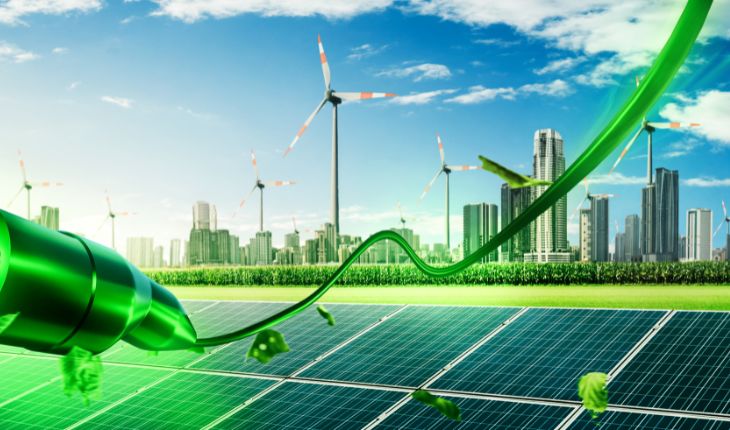
Africa is at the forefront of one of the most important transitions of our time—the shift to renewable energy. With abundant sunshine, vast wind corridors, and untapped hydropower and geothermal resources, the continent holds immense potential to lead the world in clean energy adoption. The Africa renewable energy market is not just about powering homes and businesses; it’s about driving sustainable growth, creating jobs, and building a resilient energy future.
Understanding the Africa Renewable Energy Market
Renewable energy in Africa encompasses technologies such as solar, wind, hydropower, biomass, and geothermal. While fossil fuels still dominate the energy mix in many regions, the momentum toward clean energy is accelerating. Governments, investors, and international organizations are increasingly prioritizing renewables to address energy access challenges and reduce carbon footprints.
The Africa renewable energy market is diverse and includes:
-
Utility-scale projects: Solar farms, wind parks, and hydropower stations.
-
Decentralized solutions: Mini-grids and off-grid solar systems bringing power to rural communities.
-
Corporate adoption: Businesses investing in renewable solutions to cut costs and meet sustainability goals.
Key Drivers of Market Growth
Several factors are fueling the expansion of the renewable energy market in Africa:
-
Energy access gap: Over 600 million Africans still lack access to electricity, creating huge opportunities for off-grid and decentralized solutions.
-
Abundant resources: The continent receives some of the highest solar irradiation levels in the world, alongside strong wind and hydropower potential.
-
Falling technology costs: The declining prices of solar panels, wind turbines, and storage solutions make renewables increasingly competitive.
-
Policy support: Governments are introducing incentives, feed-in tariffs, and public-private partnerships to encourage renewable adoption.
-
Climate commitments: Countries are aligning with global climate goals and sustainable development targets.
Emerging Trends in the Africa Renewable Energy Market
1. Growth of Off-Grid Solar
Off-grid solar solutions are transforming rural communities, powering schools, hospitals, and small businesses where national grids cannot reach.
2. Hybrid Energy Systems
Integrating solar, wind, and storage with traditional generators is becoming popular for stable, cost-effective energy supply.
3. Corporate Renewable Power Purchase Agreements (PPAs)
Large corporations in Africa are signing PPAs to meet sustainability targets and ensure reliable power for operations.
4. Digitalization and Smart Solutions
Smart meters, remote monitoring, and mobile payment platforms are enhancing energy management and accessibility.
5. International Investments
Global investors and development banks are pouring funds into Africa’s clean energy infrastructure, recognizing its long-term potential.
Regional Insights
-
North Africa: Countries like Egypt and Morocco are leaders in solar and wind energy, with large-scale projects connected to regional and international grids.
-
West Africa: Nigeria and Ghana are focusing on solar and decentralized systems to meet energy demands.
-
East Africa: Kenya is a pioneer in geothermal energy, while Ethiopia is investing heavily in hydropower.
-
Southern Africa: South Africa is driving growth in utility-scale solar and wind projects through its Renewable Energy Independent Power Producer Programme (REIPPP).
Challenges Facing the Market
While opportunities are vast, the Africa renewable energy market faces hurdles:
-
Infrastructure gaps: Weak transmission and distribution networks limit integration of large-scale renewables.
-
Financing barriers: High upfront costs and limited access to capital slow adoption.
-
Policy inconsistencies: Regulatory uncertainty in some countries deters investment.
-
Technical skills gap: The renewable energy workforce needs more training and capacity building.
Opportunities for Growth
Despite challenges, the sector offers significant opportunities:
-
Decentralized energy solutions: Mini-grids and off-grid systems can rapidly expand electricity access.
-
Green financing mechanisms: Increased availability of climate funds and renewable energy bonds can boost investment.
-
Job creation: Expansion of renewable energy projects will support skilled and unskilled employment across the continent.
-
Regional energy trade: Cross-border energy projects can strengthen grid resilience and promote cooperation.
-
Innovation in storage: Advances in battery technologies will enhance reliability and scalability of renewable systems.
The Future Outlook
The Africa renewable energy market is set for exponential growth over the next decade. With rising population, urbanization, and industrialization, energy demand will continue to surge. Renewables present the most practical, sustainable, and affordable solution for powering Africa’s future.
If governments, investors, and communities align efforts, the continent can become a global leader in renewable energy adoption, setting an example for the rest of the world.
FAQs: Insights from Google’s People Also Ask
Why is renewable energy important for Africa?
Renewable energy is crucial for expanding electricity access, supporting economic growth, reducing reliance on fossil fuels, and meeting climate goals.
Which renewable energy source is most used in Africa?
Hydropower has historically been the most used renewable energy source, but solar is rapidly growing due to its abundance and falling costs.
What are the challenges of renewable energy in Africa?
Key challenges include financing constraints, infrastructure limitations, policy uncertainty, and lack of skilled labor.
Is Africa suitable for solar energy?
Yes, Africa receives some of the world’s highest solar radiation levels, making it one of the best regions globally for solar energy development.
What role does renewable energy play in Africa’s economy?
Renewable energy drives job creation, attracts investment, powers industries, and strengthens energy security, all of which contribute to economic growth.






